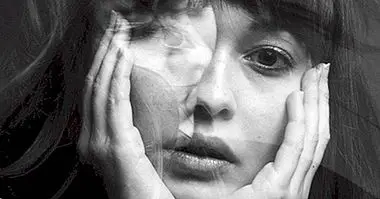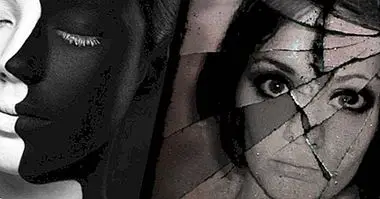Anhedonia: the inability to feel pleasure
The concept of anhedonia is widely used in both psychology and psychiatry , because it refers to a strange phenomenon that is very relevant for the person who experiences it: the inability to feel pleasure and satisfaction.
That makes this a blow to the quality of life of patients who manifest it, because everything that can be linked to motivation, sense of well-being or interest in things is nullified.
Next we will see what anhedonia consists of.
What is anhedonia?
In general terms, anhedonia is the total absence of pleasurable and satisfying sensations regardless of context. This means that it is not manifested only in a specific area, such as sports or intimate relationships, but in all the possible experiences that the person in question is experiencing.
However, there are some cases in which anhedonia is not entirely global, and manifests itself in certain areas of life, as we will see. The musical anhedonia, for example, would be one of these variants, although this one in particular hardly knows anything beyond that it appears in people who can not enjoy listening to music.
Anhedonia can be understood as if it were a reverse anesthesia : instead of being canceled all the painful experiences, those that produce pleasure or feeling of well being are annulled. In short, experiencing anhedonia means living without pleasure, whatever we do.
Anhedonia is not a disorder
This may seem confusing since the anhedonia reveals a serious alteration that should be treated, but the truth is that it is not in itself a mental disorder . It is a symptom, not a mental disorder, although it is usually one of the forms of expression of different types of mental illness. That is, it is the expression of a pathology that produces that effect, but that can also generate other mental problems.
The disorders in which anhedonia is more frequent are, in particular, depressive disorders: in depression there is usually an emotional flattening and a feeling that patients describe as an inability to enjoy things that should stimulate them positively.
But nevertheless, anhedonia is also relatively common in cases of schizophrenia and dysthymia , as well as in people who have become so addicted to a substance (alcohol, cocaine, and other drugs) that they have become accustomed to it and have become insensitive to other forms of satisfaction.
What causes can the absence of pleasure produce?
The biological causes of anhedonia are not well understood, but there are theories about them. One of the most assumed is that this symptom is born of an alteration in the reward system of the brain , located in structures related to the limbic system.
In normal situations, certain situations cause a process in our brain that will cause us to try to repeat that experience. For this, these parts of the brain generate the sensation of pleasure, in which hormones such as dopamine play a fundamental role. In anhedonia, this system of rewards would be incapacitated to activate the mechanism to repeat behaviors, and from that would derive the absence of pleasure.
The social anhedonia
There is a phenomenon known as social anhedonia in which lack of interest and lack of pleasure appear specifically in social experiences . People with social anhedonia do not find any reason to interact with others unless this responds to very specific material needs.
Social anhedonia, moreover, is often one of the first signs of the appearance of schizophrenia in some of its forms.
In addition, from what has been observed from research in which brain scans have been used, in the brains of people with strong anhedonia there are also alterations in parts of the cerebral cortex responsible for carrying out cognitive processes related to representation of "I" and of others.
Sexual anhedonia
This form of anhedonia usually occurs in men who, when ejaculating, do not feel pleasure . In women there is also an analogous form of this symptom, but it is less frequent.
It is an alteration that not only harms the quality of life of those who experience sexual anhedonia in the first person, but also involves a couple problem that must be managed. This makes it not only a phenomenon to be treated psychologically in the patient, but often it is also necessary to intervene through couples therapy.
The treatment of anhedonia
As anhedonia is a symptom, to know how to approach it first we must know its root, that is, the disorder or neurological disorder that produces it.
This will allow detecting external factors that favor and maintain their appearance (as strongly stressful elements) and will also make it easier that, in case of opting for a treatment in which psychopharmaceuticals will be used, the appropriate ones will be used.
Bibliographic references:
Beck, A.T. and Freeman, A. (1995). Cognitive therapy of personality disorders. Barcelona: Paidós.
Jaspers, K. (1946/1993). General Psychopathology. Mexico: FCE.
Vallejo-Riuloba, J. (1991):Clinical cases. Psychiatry. Barcelona: Salvat.
Vallejo-Riuloba, J. (2002):Introduction to psychopathology and psychiatry. Barcelona: Masson.



















